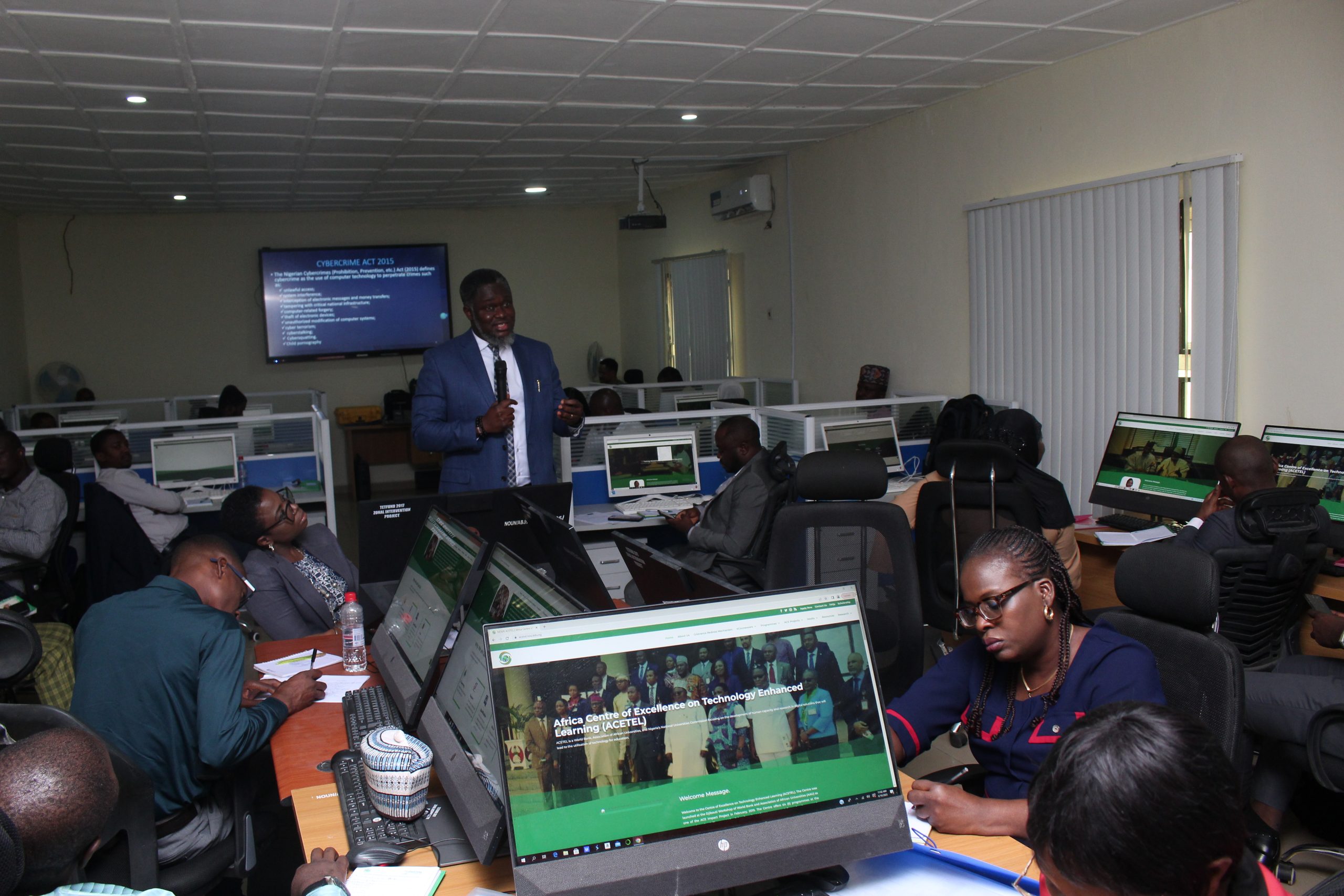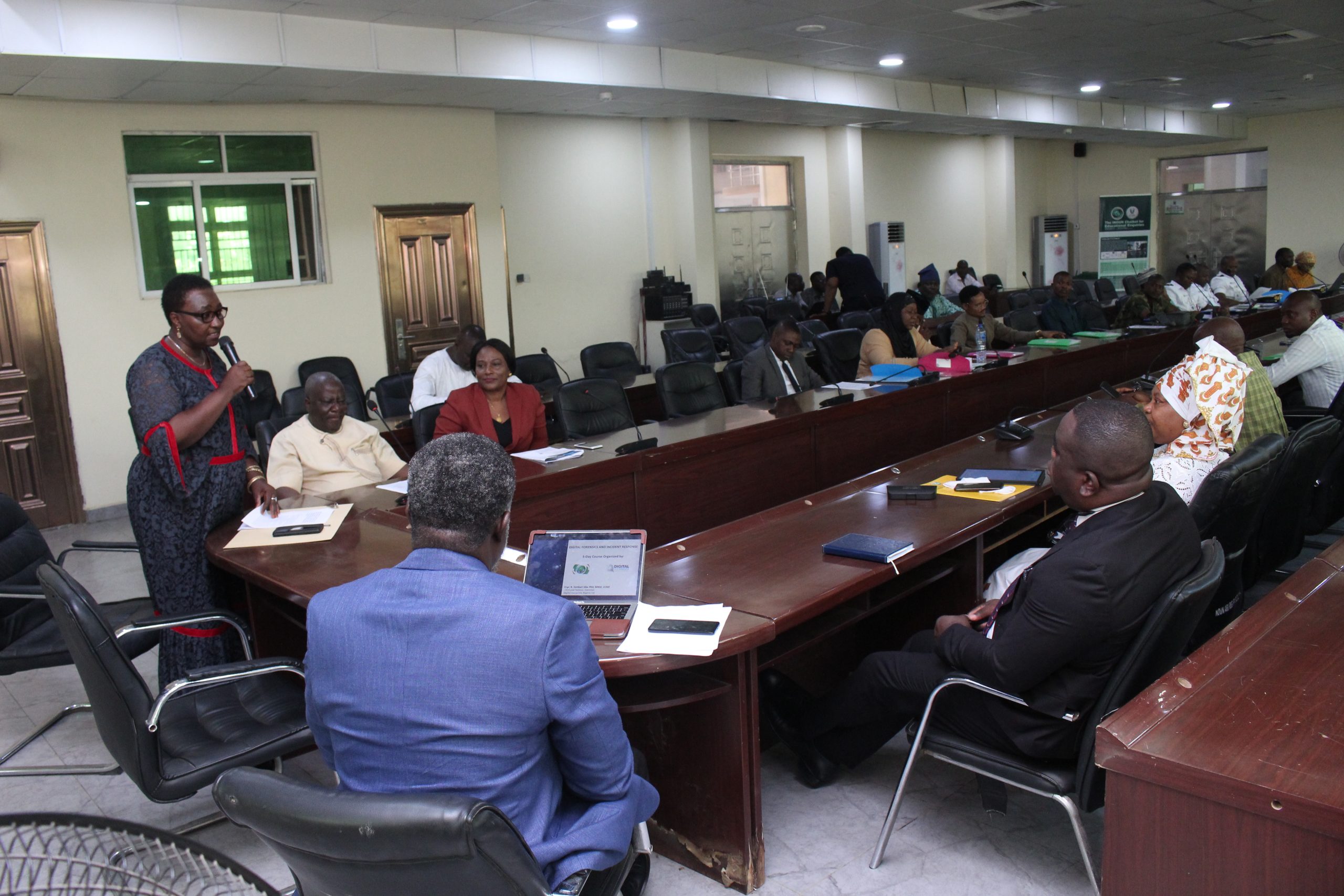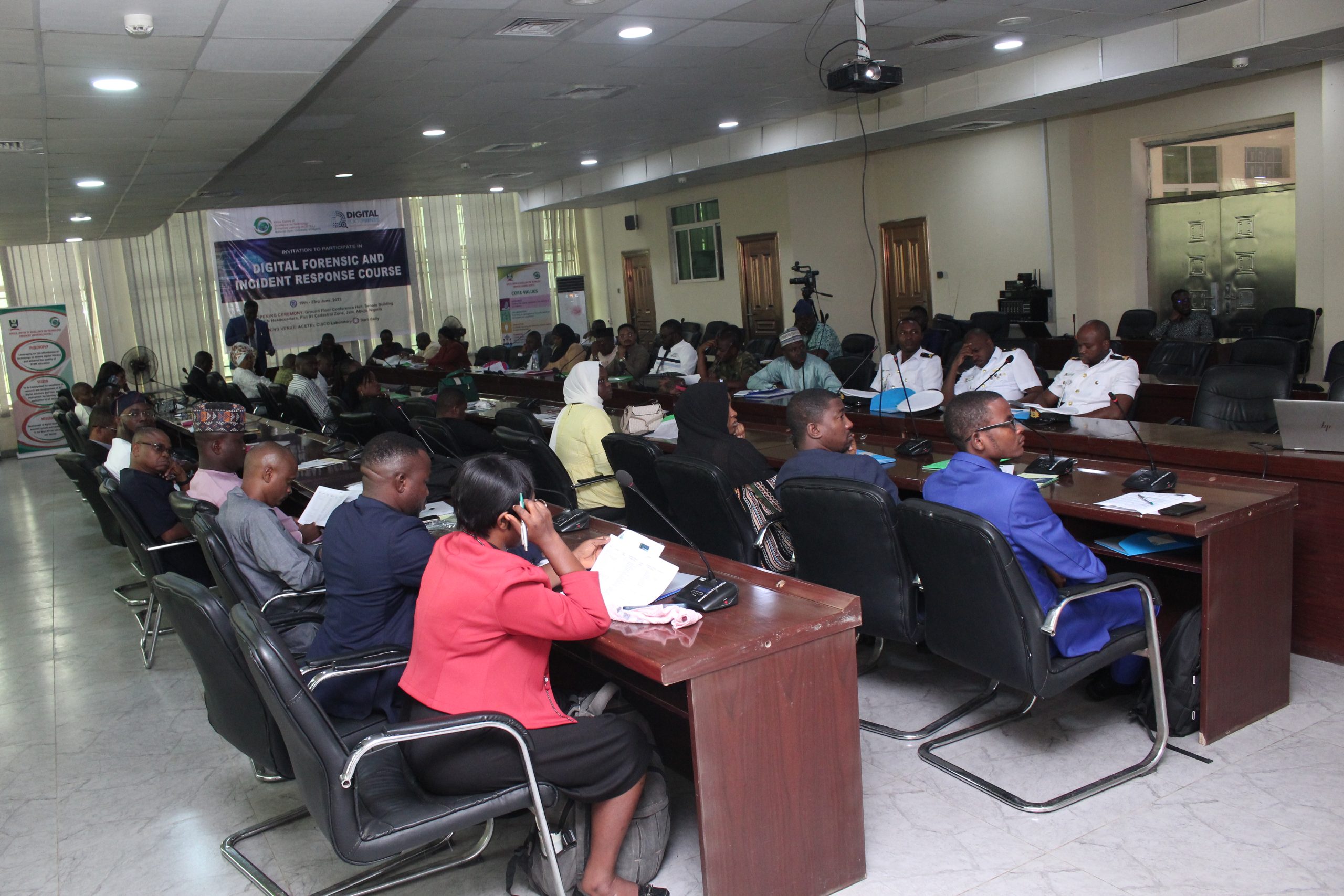Combating cybercrime: ACETEL partners Digital Footprints to train security personnel
The Africa Centre of Excellence on Technology Enhanced Learning (ACETEL) has partnered Digital Footprints, a digital forensics and cybersecurity services provider in Nigeria, to train security personnel in digital forensic and incident response.
The five-day training took place from Monday, June 19th to Friday, June 23rd, 2023, at the headquarters of the National Open University of Nigeria (NOUN), ACETEL’s host university, in Abuja.
Necessitated by a two-decade radical adoption in important aspects of national life—from Banking to e-Governance to e-elections—, the training aimed at equipping participants with essential knowledge, skills, and tools to identify, investigate, and respond to digital incidents, according to the Chief Executive Officer for Digital Footprints Limited, Dr. Tombari Sibe.

“As cybercrime increases with the use of technology, it is important that as a nation we prepare our public and private sectors for the highly sophisticated world of cybersecurity. This is the reason ACETEL and Digital Footprints have put together this course to equip participants with the necessary skillset both as human and corporate entities to be able to stand up to the emerging threat.
“Practically inclined as we [Digital Footprints] are, we have made it [the course] practically oriented, using some of the best tools in the world and hands-on practice,” Dr Sibe reassured.
In a speech made on his behalf by his deputy, the Vice Chancellor of NOUN, Prof. Olufemi Peters reckoned an increasing threat of cybercrime in Nigeria. He emphasized the importance of empowering security personnel with digital forensic tools to curb the menace, hence the need for the training.
“Cybercrimes are becoming increasingly alarming these days; hence, there is a need for software or methodology to arrest the situation. Digital forensics is inevitable if the law enforcement investigation today is going to be meaningful,” he concluded.

Prof Peter’s sentiment was shared by his colleague Prof. Grace Jokthan, ACETEL’s Director. For Prof Jokthan, as cyber threats continued to evolve and challenge the security of people, organizations, and nations, it had become non-negotiable for guardians of the digital world to stay one step ahead and be armed with the knowledge, tools, and techniques to safeguard digital assets and preserve the integrity of evidence.
“The training delved into the fascinating world of cyber investigation whereby we explored its such aspects as evidence connection, preservation, analysis, and effective management of cyber incidence.
“Together, we navigated through real-life scenarios and examined the latest trends and challenges in the field. With these insights, participants, including National Information Technology Development Agency (NITDA), Federal Road Safety Corps (FRSC), Nigeria Deposit Insurance Company (NDIC); Defence Research and Development Bureau (DRDB), Presidential Amnesty Programme, and the Federal Ministry of Communication and Digital Technology, should be better equipped to handle digital incidents, identify potential vulnerabilities, and mitigate future risks,” Prof. Jokthan said—optimistically.
ACETEL is one of the 53 World Bank-funded Africa Centres of Excellence for Development Impact (ACE Impact), which aim to enhance the quality and quantity of higher education on the continent. To support ACE Impact’s overall goal, ACETEL is developing human capacity and research to use technology to aid education. For more information on ACETEL and its activities, please visit the website.




